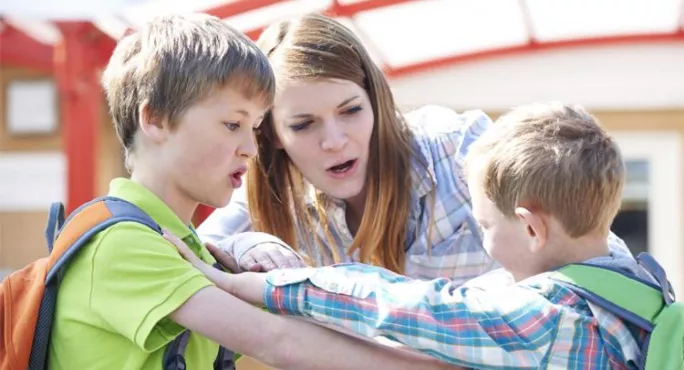I am writing this article in the last week of the academic year. In among all the celebrations and goodbyes - and let’s not forget that schools have been brilliantly creative with this in spite of coronavirus restrictions - we have been dealing with a situation that has saddened all of us. I won’t go into details, but it has involved a member of the public mocking the behaviour of one of our students on social media.
Quite rightly, we hold adults who work in our schools to higher standards, but all the same, it has forced me to reflect on our reactions to difficult situations that we may find ourselves in in schools when the behaviour of a child falls far outside of our normal, everyday experiences.
Read more:
-
-
Do sanctions alone actually improve behaviour?
-
Being shocked or appalled by the behaviour of a child is one thing, and the shock or disgust will undoubtedly force a sense of urgency, but the stress of a serious situation can cloud our judgement when deciding how best to deal with it.
Why do children misbehave?
My 20 years’ experience as a teacher (and my time as a special constable too) has taught me to keep two things at the forefront of my mind in such situations.
The first priority is immediate and a matter of safety: it is to de-escalate the situation. I see this as being in the spirit of the Hippocratic oath: “First, do no harm”. This includes ensuring the safety of the child themselves and their classmates if things are dangerous.
As a result of this, it makes me uncomfortable to hear a child’s behaviour described using language such as “having a meltdown” or “going crazy”. I much prefer to view the child’s thinking as being overwhelmed, with my job being to help the child make the right decisions that they, in that moment, are struggling to make on their own.
Second, the longer-term aim is to help the child improve their behaviour so they are better able to cope and the chances of being overwhelmed in the future diminish. With that in mind, I find it helpful to regard the child’s behaviour as their solution to a problem.
Is the behaviour inappropriate? Yes. Is it destructive? Quite possibly. Is it effective? Could be. (“Effective” here means, to me, effective at having their needs met.) Behaviour can be all of those things, all at once.
Screaming at a teacher and ripping up all their work will get a child removed from a class almost instantaneously. The behaviour is highly inappropriate, yet supremely effective if the solution is to avoid at all costs the perceived failure associated with a task and the feelings of shame and inadequacy that may come with it.
Behaviour as a ‘solution to a problem’
This mindset reminds us of Ross Greene’s mantra that children do well if they can, and if they’re not doing well it’s because they are lacking the skills to do well. I find myself forced to take this thinking further, though. Doing well in our context inevitably means the child doing what we want them to do. If a child assesses their chance of doing well (as we would define it) as being low, then perhaps they can find their own ways of being successful. In this way, doing everything possible to avoid a situation can be regarded as a success.
Without wishing to make light of the matter, think of the sickening feeling some of you have had when it becomes apparent to you that an Inset trainer is about to get you to do one of those awful ice breakers and of all the ways you rapidly invent to get out of it. I’m now in a position in life where I will fake a child protection call on my mobile, so I simply have to leave the hall for five minutes.
It may seem counterintuitive to think of a child’s behaviour as a solution to a problem when something bad has happened, but it can put us on the solution-focused path to helping the child improve their behaviour and that is, after all, what we really want. When all our students are in a position to self- and co-regulate, we know we will have done a great job of producing good citizens who would never dream of taking to social media to mock someone who is struggling to behave well.
Jarlath O’Brien works in special and mainstream schools and is the author of Leading Better Behaviour: a guide for school leaders, published by Corwin Press





